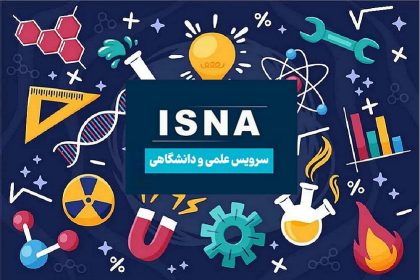On the sidelines of the information science and artificial intelligence event that was held on November 23rd at the National Library, “Fateme Kanani”, a member of the faculty of the Presidential Institute of Technology Studies, discussed the ethical challenges in the field of artificial intelligence and necessity in the panel on ethics and artificial intelligence. Correct governance in this field of payment.
In this conversation, he mentioned important topics such as ethical challenges, the need for appropriate policies and the applications of artificial intelligence in the digital age.
Being at an impossible point
Stressing the importance of moving towards artificial intelligence, Fatemeh Kanani said: “In the digital age and with regard to scientific and technological advances, it is necessary for human society to pay special attention to strengthening human intelligence using artificial intelligence.” “This movement not only helps in scientific development and progress, but it should be properly managed and governed to prevent any possible harm to humans.”
He continued: “This evolution in the digital world and new technologies is similar to science fiction movies, where the first ideas about scientific advances are discussed. “Now we are at a point where what once seemed impossible in our minds has become a reality.”
Artificial Intelligence Governance: A Way to Manage Ethical Challenges
Dr. Kanani pointed out the differences between “governance” and “politics” and said: “Governance means leadership and guidance, like leading a ship at sea. While policymaking is more about mapping and guidelines. In governance, attention should be paid to all stakeholders and different sections of the society, and the government should not play only the role of ruler.
He added: “The correct governance of artificial intelligence should include interactions between the government, civil society and the private sector. These interactions should go towards creating integration and convergence between different priorities and interests.”
Ethical challenges in artificial intelligence: Looking at human principles
Pointing out that many of the ethical challenges of artificial intelligence have been raised at the global level, Dr. Kanani emphasized the importance of matching algorithms and models of artificial intelligence with human values: “If algorithms are not designed based on society’s values, we cannot expect that their results serve human welfare and social development. “Algorithms must conform to the social and moral norms of society.”
He continued: “In fact, the responsibility for the development of artificial intelligence is not only on the developers and researchers of this field, but all governmental and social institutions should receive the necessary support to optimize and moralize these technologies.”
Ethics in Artificial Intelligence: From Human Welfare to Transparency
In the end, Dr. Kanani mentioned the ethical principles that should be observed in the design and development of artificial intelligence. He stated: “Artificial intelligence should be designed for human welfare, environment and society. These principles should be considered in all the processes of development and application of artificial intelligence in order to prevent any discrimination, bias and damage to the society.
He added: “In the design of artificial intelligence, justice, fairness, and data security must be seriously observed. Also, the transparency and ability to explain the results of the algorithms is also of particular importance. “If an AI system makes decisions, we need to be able to track the way those decisions were made and explain why those decisions were made.”
Challenges and Future of Artificial Intelligence: “Artificial Intelligence as a Tool, Not a Threat”
Dr. Kanani pointed out the various challenges in the development of artificial intelligence, especially in the field of algorithmic discrimination and data security privacy, and noted: “This technology, although it is a powerful tool, must be monitored and held accountable to avoid creating ethical problems and social prevention.”
He emphasized: “The future of artificial intelligence should be aimed at improving the quality of human life. We should not look at this technology only as a threat, but we should consider it as a tool to facilitate and improve human life. “The responsible use of this tool can lead to huge improvements in various fields.”
Finally, Dr. Kanani concluded that for the optimal use of artificial intelligence, we need appropriate policies and ethical governance. This process should be done in accordance with ethical principles and considering the long-term interests of the society. They also emphasized the need for international cooperation in this field and said: “All advanced countries should move in line with each other in the ethical discussions and governance of artificial intelligence in order to prevent possible threats and exploit its benefits.”
RCO NEWS















